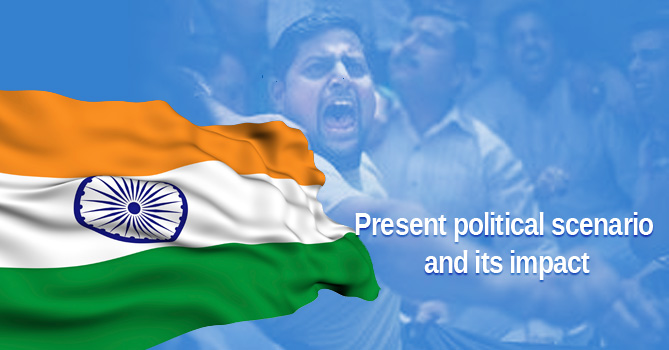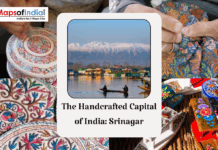Watching the recently concluded Bihar elections makes one feel the need to step back and ask the question – what is the state of Indian politics and what is its real impact on India?
These elections will be remembered for the intense fight put up by BJP, led by no less a person than the Prime Minister himself, but it will also be remembered for the vitiated atmosphere under which it was fought, with all parties indulging in vicious name calling and blatant attempts to polarize the voters.
Poll rhetoric during elections is normal in India but this time the levels were often personal and below the belt, leaving the rest of the country aghast, disappointed and wondering where the political discourse was heading.
In a democracy, politics is supposed to represent the voice of the people, wherein politicians are expected to fairly represent the expectations of the voters that voted them in. But this is an idealist perception. In reality, politics has become a business, often family business, where a small group of people control the ‘affairs’ of politics in an oligarchy, for selfish gains – monetary or otherwise.
Bad mouthing for attention
Bihar elections brought out not just inter party bad-mouthing but also intra-party, as being seen in the case of BJP leader Kailash Vijayvargiya comparing his own party MP from Patna Shatrughan Sinha, to a dog. This is not the first time the analogy of a dog was used. Recently, BJP Minister of State and former Army Chief Gen VK Singh also drew on a dog analogy which marked the distasteful levels of politics being practiced in India. This is by no means restricted to BJP alone, all parties face similar situations with little to no action taken to reign in these irresponsible politicians.
Uneducated ministers
A large part of the problem can be traced to the fact that most politicians are either semi-educated or minimally educated having suspect degrees that are more a formality than any educational value. There is a clear distinction amongst the better educated politicians and those with poor educational backgrounds and this gap is reflected in their political exchange, either within the party or in public life. It is imperative that we include more educated politicians to hold office than those who with poor quality of education.
Criminals are gaining prominence
The danger to free and fair politics in India emanates from the root cause of the problem and that is the involvement of criminals in active politics. Take a look at the Bihar elections this year. Out of a total 3,450 candidates contesting the elections, 1038 candidates (38%) had criminal cases against them. 796 candidates (23%) had serious criminal cases pending which included murder, attempt to murder, crimes against women, kidnapping, and creating communal disharmony.
So where does democracy stand a chance to be free and fair? And is this fair to other educated and serious politicians who have entered politics to make a positive difference to people’s lives?
Youth rejecting negative politics
All parties have their fair share of candidates with a criminal background who are given tickets to stand for elections, and therefore each party’s leadership must accept responsibility for the poor quality of politics being practiced today. Across the country, the youth are expressing their frustration and rejecting the low level of politics being played out by all parties, and have been expressing themselves on social media and other forums. This is the prime reason why they are unable to connect with old world political leaders and their polarizing politics, and are therefore, unwilling to come forward and take part in active politics.
Increasing intolerance is a direct fallout of extreme ideologies that believe everyone must follow their path and political belief. This goes contrary to the virtues of a free democracy where everyone has the right to be free to follow any lifestyle, religion or political ideology, and where all decisions are taken through discussions and debate.
The youth is supposed to look up to people in public life as role models in society and when politicians debase themselves in public, they run the risk of losing all respect from not just the youth but all members of society.
Unfortunately, this is the ground situation today and therefore, there is an urgent need for all political parties to come together and discuss how to improve the quality of politics in the country.
Once there was hope…
The Anna Hazare movement was an attempt towards cleaning politics but lost steam after receiving a very enthusiastic response from the youth of this country. At the time, there was serious hope that the political elite will listen and reform the quality of politics but that hope was short-lived. Today, there is disillusionment and disenchantment with the political leadership and unless politicians across party lines heed to this call for change, they run the risk of losing whatever is left of their credibility.
The problem is that a few bad politicians are consistently responsible for spoiling the reputation of the entire political class. Many politicians who are sincere, mean well and command the respect of the common man, find their voices being drowned in the cacophony of name calling and degenerate politics. It is a sad fact that compulsions of politics holds back the leadership from taking affirmative action.
Call to action
There is an urgent need for all parties to discuss and debate establishing a minimum standard of protocol in public life that all parties must ensure and follow, in and outside the Parliament. It is imperative that each party have its own check and balance ensuring that its leaders and party cadres uphold a minimum standard of protocol in public life. And there must be no place for violence in any form. Is that too much too expect?






